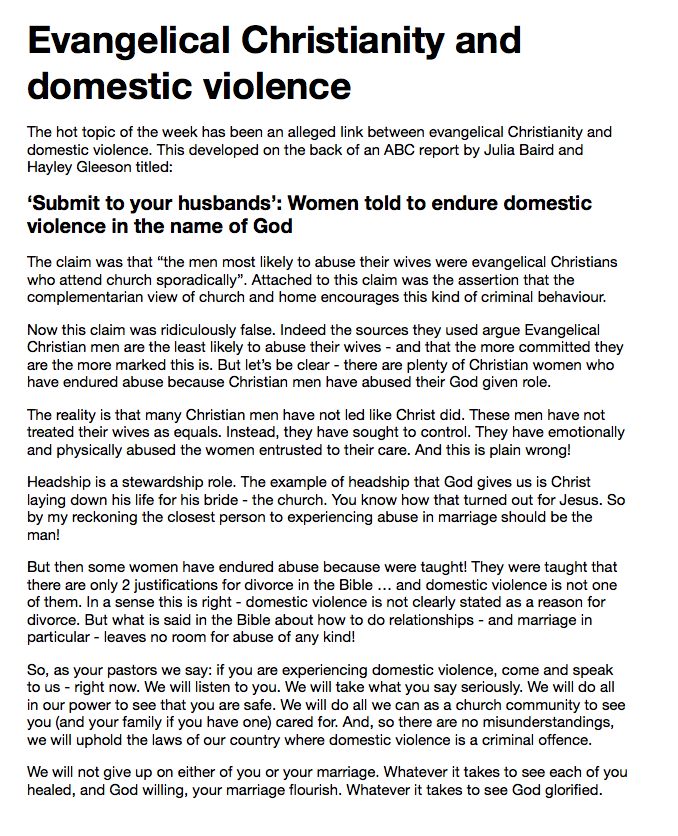For most of my adult life, I’ve been a pretty well-adjusted human, all things considered.
That’s what I would have told you 12 months ago, anyway. I’ve been on a bit of a journey of self-discovery since then, and no, that’s not code for “self-indulgent mid-life crisis.” Ask the trauma psychologist I’ve been seeing fortnightly (not that she’s allowed to tell you anything).
Confronting the parts of myself that are dysfunctional has been devastating at times, liberating at others. Exhausting, too–it’s hard work to reflect deeply on the ways you’re under the influence of your past, to regularly articulate your thoughts and feelings to a therapist, and to work steadily on the changes that are needed for a more functional future.
But the biggest challenge, I think, has been learning not to resist each new discovery about myself. If I hadn’t found a way to accept the Luke who materialised, piece by piece, during each psych visit–the real Luke, flawed and broken but growing and healing–I would either be deeply depressed, or still at square one, believing myself to be well-adjusted.
Sometimes I wonder if I’m just a hypochondriac, working up medical excuses for decades of bad habits and faulty decisions. That would be easier to deal with than this continuous loop of memories, reactions, therapy, research, reflection, and practice. But I’ve slowly learned to accept this new picture of myself, gaining knowledge along the way. And knowledge, they say, is power.
It started with panic attacks I could no longer pretend were anything else. They could be triggered just by seeing my mother’s car, or a car that looked like hers, and they would totally immobilise me. I had no choice but to accept that I was experiencing debilitating panic attacks and needed help. (On reflection, they had been happening for a while–racing heart, uncontrollable shaking, irrational thoughts–I just didn’t recognise them.)
It took a few weeks to find a psychologist who specialised in treating adults with childhood-related trauma (given interactions with my parents were my main triggers, I figured this would be a good place to start). She quickly formed the opinion that my symptoms were consistent with unresolved trauma from child abuse, and that I’d need significantly more sessions than Medicare would cover to get on top of it. She recommended applying for funding from NSW Victims Services.
I did, and it was granted, but it took some time for me to accept that my childhood was “abusive” (I wouldn’t have gone much further than “strange” or “volatile” previously). It took even longer to accept that seeking help as a “victim” was a reasonable course of action under the circumstances. (Even now, my sister is skeptical when I describe my childhood in these terms. Turns out her childhood was awful in different ways to mine–and that it’s not unusual for this to be the case.)
In time, as I progressed through therapy, it became necessary to accept that I’m dealing with C-PTSD. “Complex” PTSD is a form of Post-traumatic Stress Disorder that’s brought on by sustained abuse over an extended period. Here’s a quote from Wikipedia’s C-PTSD article that should help explain my reluctance to accept this diagnosis:
Researchers concluded that C-PTSD is distinct from, but similar to PTSD, somatization disorder, dissociative identity disorder, and borderline personality disorder, with the main distinctions being that it distorts a person’s core identity, and involves significant emotional dysregulation.
Then there’s the fact that most of my significant decisions as an adult have been the result of subconscious self-sabotage. This realisation, when it finally sank in, knocked me around for days. Refusal to pursue academic success in any field? Choosing to work as a photographer because it was the opposite of what my parents had groomed me for? Starting a family with a controlling but superficially lovely woman? All of these, and many more, were subconscious attempts to give my abusive father no success to claim for himself.
It gets worse: in many cases, I have subconsciously set people up to be disappointed or angry with me, anticipating they will abuse me like he did, believing it’s what I deserve. I thought I was lazy, or unproductive due to obsessive perfectionism, or pathologically horrible (despite genuinely good intentions). The truth is much more awful.
Accepting that so many of my choices have been so destructive for so long has been tough, but so has accepting other people’s lack of acceptance. Whether they’ve spurned my lack of compliance with their rules (e.g. “marriage is forever, no exceptions”), or couldn’t deal with me describing my childhood as abusive, huge swathes of my pre-2016 network of family and friends–even my own brother–have quietly but definitively asserted that they would prefer not to acknowledge my existence any more than necessary. Although I had anticipated most of this (ditching the church and my marriage was always going to have consequences), the depth and extent of the judgement and rejection has been confronting enough to create moments of significant doubt, anxiety and depression.
Thankfully, between my real friends (whose friendship has always been unconditional), a bunch of new friends, and a new family, I’ve received more than enough acceptance to get through those moments.
There will, no doubt, be much more to accept as I work towards being the best possible version of myself. But I’m thankful for what I can already see, and determined to make the best of it all.
